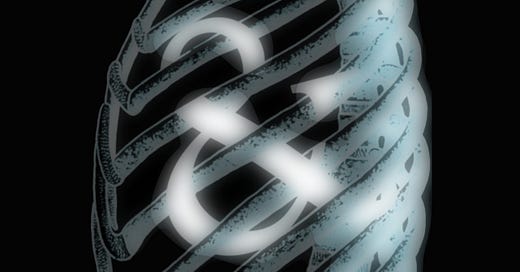Dear Aviva,
I was very touched to encounter your thoughts on Aviva’s Substack
about reading my essay collection (Imagining Imagining: Essays on Language, Identity and Infinity.) I really admire your honesty in speaking about writerly envy, discouragement, and regret. I think that we need conversations like this because really it is so much of the experience of being a writer rather than some perfectly polished, highly trained or preternaturally gifted creative who constructs “hard won” work with the steely eyed confidence of a civil engineer. That’s not who almost all of us are as writers. We create out of the contingent, conflicted, messy reality of being a human. And, I’d argue, that makes us better writers in the end. (BTW do you know Kathryn Mockler’s great substack
which often speaks of the reality of being an actual person and a writer, too?) In this, my first substack post, I wanted to respond to your generosity and insight. To thank you, and to offer some of my thoughts on the subject in response. I’m very grateful for your discussion.
Do you know that line from Paul Quarringon where he says that “envy is the writer’s black lung disease”? I think it’s absolutely true. But not just or necessarily envy about someone else’s success or even writerly way of being (but of course it’s hard not to reflect on what their success means about what we have or haven’t accomplished and what their outlook or kind of engagement means for us.) Certainly there’s always a “grass is greener” feeling, so that no matter what one is doing, what other people are doing always feels like somewhere we should be doing. (And, I think, this is always especially the case on social media or when reading someone’s works or news as opposed to speaking to them in person.) I’ve looked at numbers for my first novel (which was very successful) and my second novel (which was much less so) and have felt envy on behalf of myself as the writer of the second book since the first book is still outselling it. So that really led me to think about envy – how could I be envious of myself? I realized that my reflex is to be envious of my best writing moments—“If only I could write that I did then!”—alternating at the same time with seeing how much the past work didn’t do, how it failed in so many ways. It’s this strange paradox of both hating and admiring one’s writer self, hating and admiring one’s work, often at the same time, sometimes about the same work.
I recently read an interview (with poet, Maggie Smith about her new book Dear Writers: Pep Talks and Practical Advice for the Creative Life. I love how she speaks about the process of writing (and the “good trouble” of it) over the result and how if one can love the process (which, I’ve come to understand inevitably includes all one’s weakness, pettinesses, foibles, fears and envies as well as all of the more admirable compassions, inspirations, insights, self-love and compassion, and so on. She writes:
“the process is the process. And there is no point—at least I have not reached the point, maybe I’m wrong—but from my experience, there’s no point at which we become exempt from the messiness. And frankly just, it’s uncomfortable to not know how you’re going to find your way through a process. I don’t care if the process is a piece of writing or not. It’s uncomfortable and there is no amount of experience that exempts us from that discomfort. So, if you don’t enjoy that discomfort, you’re not going to keep up with a creative practice. You actually have to love making things more than you love having made them.”
I guess I’m saying (and I hope I’m not sounding patronizing here – because I’m telling myself this as much as anyone else) that the “good trouble” and the process of writing includes all that stuff outside of actual writing which is what it means to be fully human, warts and all, and not a caricature of one. I’m slowly realizing that all the difficult mechanics of my psychology is what it means to be me as a writer. I’m 61 and likely most of this stuff will be with me for the rest of my life, try as I might to embrace greater equanimity and despite moments (or even more extended stretches!) of purer and unadulterated compassion for myself, everyone and the world. I think, ultimately, that this is helpful to me as a person and certainly as a writer. If I were a beam of pure light, radiating nothing but glorious love and illuminating confidence, I’d be a prophet and not a writer. And in fact, I’d be quite a lousy prophet because who could relate to my transcendent hectoring? I think it’s better to be in the muck of the trenches with all the other imperfect humans, doing our best to dig ourselves out, to make a life in the mire, to help and relate to others who are also doing this. And even to take a minute to be a surly, petulant teen feeling that the world is against us and no-one loves or understands us anyways. That guy I can relate to!
I also think that if I squint just right I can see this “envy” or “jealousy” or castigation of self as the other side of my aspiration to make something that speaks adequately to (gestures broadly left to write) everything. That brings a kind of inspiring beauty or “truth” to the world, the kind of communication that I aspire to as a creator. Of course, I tell myself, if I’m comparing myself to that, I’ll feel small and inadequate. But, if I’m able to try to get out of the way and just get carried by the wave (or undertow) of the work itself—to allow my curiosity and engagement to be the main thing—then my sorry little ego isn’t so prominent and I’m not in the way of both the work and my joy and satisfaction of creation. The self recrimination and denigration can be for later—but at least for an exhilarating moment—I’m buoyed by the work, by something that feels bigger than me that I get to be part of.









Dear Gary,
The conversations and connections that come from laying my anxieties on the table, under the bed, and in random public spaces will trump envy and regret any day (well most days, ok some days). But so worth it!! I love your response to my writerly anxieties!! I knew I wasn’t alone. But that sense of boo hoo me, no one ever feels this disappointed in themselves, is the dank mouldy basement where ego meets envy. Surely it contributes to black lung. Or at the very least dark brown lung.
Always appreciate your thoughts and ways of putting things, Gary. Really enjoyed this conversation between you and Aviva. You two should write together more often!